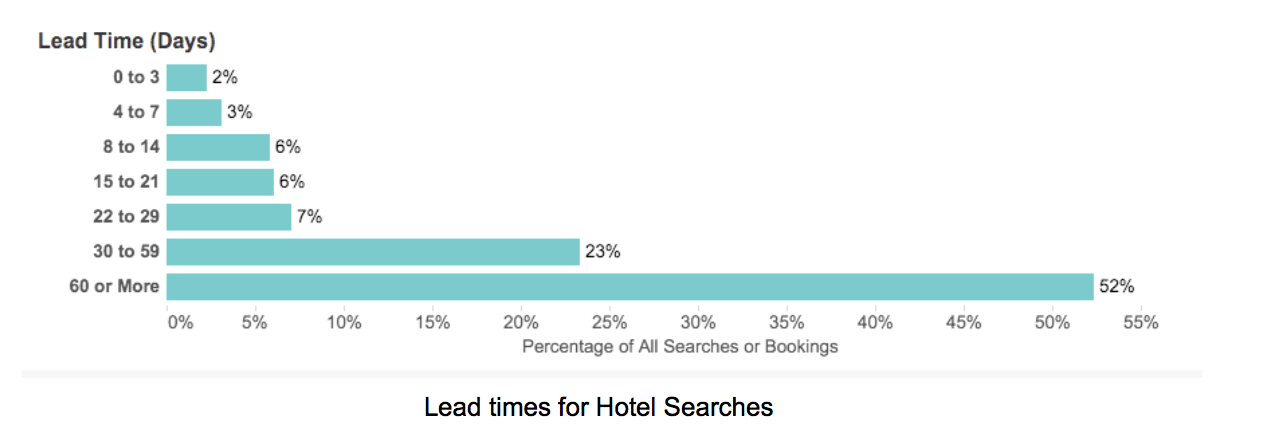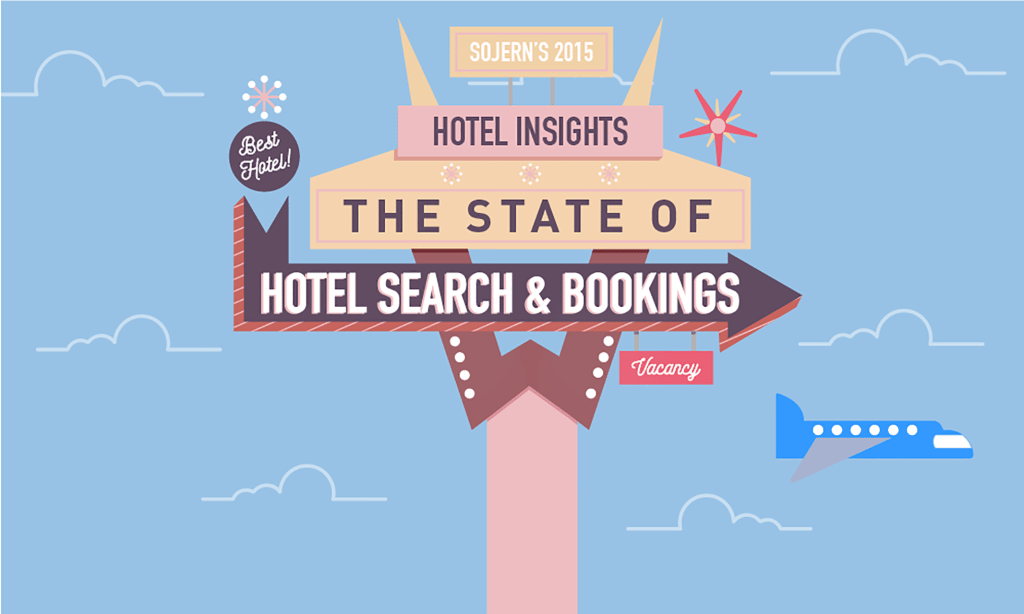Skift Take
Consumers are spending more time looking for hotels than for flights. Download Sojern's free report to learn more about the timing issues that are unique to hoteliers.
This sponsored content was created in collaboration with a Skift partner.
Hotels are in a unique and time-sensitive position when it comes to converting consumers. Americans are spending nearly 25% more time on their hotel path to purchase than their flight path to purchase. That would seem to provide hoteliers with more time to influence a potential shopper’s decision. However, the time between initial search and booking are shrinking, with last minute bookings showing an increase of 150%.
With this volatile timeline, reaching the right audience at the right time is imperative. Sojern’s 2015 Hotel Travel Insight Reports helps break down and explain the tough timing issues that are unique to hoteliers.
It’s a laborious research process for early birds
Not only are travelers spending more time booking their hotels than their flights, they’re searching a large number of hotels as they narrow down their research. On average, luxury hotel bookers have the highest number of searches before they book, searching on average 8 hotels within the same day of booking. Travelers booking upper-midscale hotels have the second highest number, searching on average 6 hotels the same day of booking.

But, lead times are shrinking…
While consumers are researching a lot of hotels before booking, the proportion of last minute booking is high. In the US, 2% of travelers are looking for last minute hotel stays, and 5% of all bookings are last minute. The proportion of last minute bookings, then, is higher than other segments, with an increase of 150%.

For US travelers looking for global travel
Takeaway: take timely action
The rules of online hotel marketing are changing. With so many routes to finding their hotel, consumers are spending a lot of time researching the perfect hotel—which is more time than they spend on their flights—but, then booking closer to their actual stay.
Acquiring and activating data insights is key to converting travelers. For example, as we see in the first figure, luxury hotel bookers have a longer research process than others. This needs to be taken into account in your marketing efforts: effective targeting won’t simply be offering luxury experiences or products. Rather, it’s necessary to also understand the unique timeline for luxury travelers and tailor your messaging, both in terms of timing and frequency, accordingly.
Identifying the right consumer, and delivering ads specifically targeted to their needs and intent is going to be important to producing truly impactful campaigns. Without deep data, campaigns might fall on deaf ears, coming too often or too late. It’s necessary, then, to find that sweet spot for advertising that matches the timing of the consumer’s decision-making because timing is everything.
Download Free Report
This post was brought to you in sponsorship with our partner, Sojern.
Have a confidential tip for Skift? Get in touch


